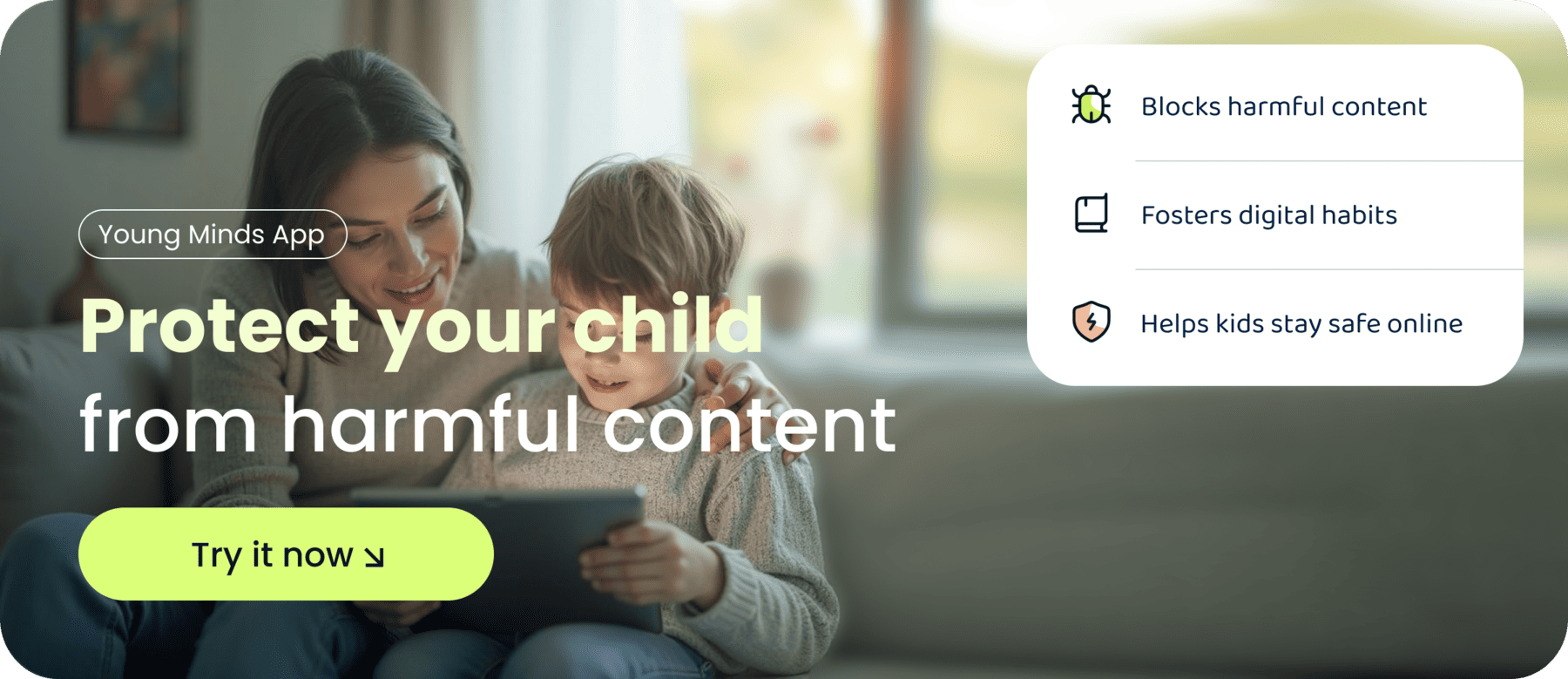In today’s digital landscape, children are communicating in ways that look very different from the texts and calls their parents grew up with. From anonymous chat platforms to native messaging tools with hidden features, it’s no longer enough to monitor just WhatsApp or Snapchat.
Two platforms parents often overlook in 2025 are Kik Messenger and RCS messaging. One is an app with a controversial history; the other is quietly embedded into most Android phones, often operating under the radar.
At Young Minds, we help UK parents decode the digital world so they can guide their children safely and confidently. This guide will explain what Kik and RCS are, how they work, the risks they pose, and how to take back control—without losing connection or trust.
What Is Kik Messenger?
A Messaging App That Prioritises Anonymity
Kik is a standalone messaging app that allows users to send direct messages, join public groups, and exchange media—all without ever verifying their identity through a phone number. Users only need a username to get started.
While Kik isn’t as mainstream as WhatsApp or iMessage, it continues to appeal to preteens and teens due to its anonymity, group chat options, and unmoderated nature. That combination makes it attractive—and dangerous.
Why Kik Still Raises Concerns in 2025
Although Kik has faded from the headlines, it remains a platform with significant safety issues:
- Anonymous access: Children can be contacted by strangers or join unmoderated groups.
- Lack of oversight: There are no default parental controls or age verification tools.
- Known history of harm: Kik has been repeatedly associated with grooming, exploitation, and inappropriate content sharing.
For many parents, the biggest issue is not realising their child has downloaded it in the first place.
What Parents Can Do
- Block Kik using App Filtering via the Young Minds App.
- Enable App Approval, so no new messaging apps can be installed without your consent.
- Talk openly with your child about who they talk to online and how they verify identities.
Tip: Ask open questions like “What do you like about this app?” or “Has anyone ever messaged you that you didn’t know?” to prompt safer discussions without shaming.
What Is RCS Messaging?
The Built-In Chat App Most Parents Overlook
RCS, or Rich Communication Services, is the next evolution of SMS text messaging. It’s pre-installed on most Android devices via the default messaging app, such as Google Messages.
On the surface, it looks like regular texting—but RCS adds:
- Typing indicators and read receipts
- Group messaging
- File and media sharing
- Cloud syncing across devices
- Internet-based messaging (Wi-Fi or data, not SMS)
Many children now use RCS without even realising they’re using an advanced messaging tool—and many parents don’t realise it exists.
Why RCS Poses a Hidden Risk
While not designed to be harmful, RCS can become risky without oversight:
- Unmonitored communication: Children can send and receive rich media, links, and attachments.
- No separate app icon: Parents often assume they're just “texting” when it's much more.
- No app-level control: Since it’s built-in, it's harder to disable or monitor like WhatsApp or Snapchat.
Spotting the Signs of Hidden Messaging
Even with safety conversations in place, children may hide or minimise the extent of their communication. Look for these common behaviours:
- Your child quickly switches screens when you walk by
- They delete text or chat threads regularly
- You notice them texting late at night, despite screen time limits
- They seem withdrawn or unusually private about their phone use
These are not always signs of danger—but they are clear signals that it's time to check in.
How to Stay in Control
Here’s how Young Minds helps families maintain digital safety while promoting trust and communication:
- App Monitoring: Receive alerts when new apps like Kik are installed, and block or remove them remotely.
- Message Activity Oversight: Track how long children spend messaging—whether through WhatsApp, RCS, or any other tool.
- Custom Routines: Use Bedtime Mode or Study Mode to limit messaging during sleep and learning hours.
- Guided Check-Ins: Prompt meaningful conversations with built-in suggestions that help you understand your child’s digital world—without conflict.
Final Thoughts
You don’t have to be a tech expert to be a digitally aware parent. Kik and RCS may not make headlines like Snapchat or TikTok, but they present real risks—and real opportunities for growth, too.
The goal isn’t constant control. It’s confident guidance.
With Young Minds, you can stay informed, stay connected, and build a digital environment that prioritises safety, balance, and trust—no matter what apps your child is using.
Parents Also Ask:
What Is Kik Messenger?
A Messaging App That Prioritises Anonymity
Kik is a standalone messaging app that allows users to send direct messages, join public groups, and exchange media—all without ever verifying their identity through a phone number. Users only need a username to get started. While Kik isn’t as mainstream as WhatsApp or iMessage, it continues to appeal to preteens and teens due to its anonymity, group chat options, and unmoderated nature. That combination makes it attractive—and dangerous.
Is RCS safer than SMS?
Not always. RCS allows richer messages and media, but with fewer visibility tools for parents—making it harder to monitor than basic SMS.
How is RCS different from SMS?
RCS works over Wi-Fi/data, supports photos, read receipts, and group chats—making it more like WhatsApp than traditional texting.
What’s the difference between Kik and WhatsApp?
Kik uses usernames and allows anonymous chats. WhatsApp links to real phone numbers and contacts, making it generally safer and more traceable.





